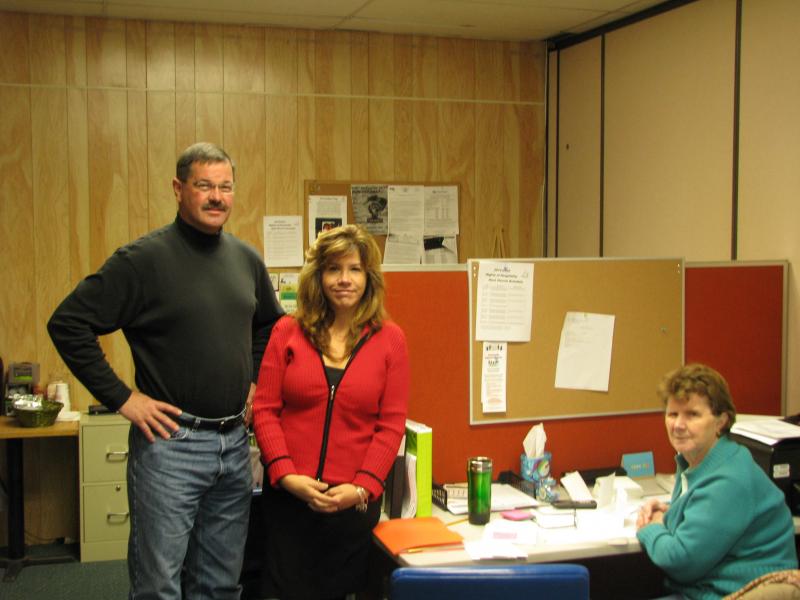How to end homelessness in Wareham
With a new director and more than a decade of growth, a local non-profit is looking toward the future with the hopes of eradicating homelessness in Wareham.
Turning Point, a non-profit resource center that helps the homeless and near homeless in town, is placing more importance on the "Housing First" initiative to stop homelessness.
Housing First puts people in homes without making them jump through hoops to get there. The goal is to give the stability of shelter while providing support services to help improve their lives.
"Years ago, a lot of shelters and housing groups said 'You have to do this, that and the other -- then we'll talk about housing,'" said Peggy Hall, Turning Point's new director as of Oct. 1. "Housing First gives people the opportunity to live somewhere first."
"From this platform people are better equipped to live," said David Shaw, pastor of the Emmanuel Church of the Nazarene and chairman of the Board of Directors of the Wareham Area Committee for the Homeless.
Not only do Shaw and Hall think the program could help the 35-50 chronically homeless in Wareham, they say the program is cost effective too.
Shaw said the homeless account for a disproportionate amount of emergency services such as trips to the emergency room (even for non-emergencies) and calls to police and EMS. Studies, such as one by UMass Boston, have shown these costs greatly decrease as the homeless are given permanent shelter.
According to a June report from Home and Healthy for Good, a Massachusetts Housing First program, 766 chronically homeless people have been placed in permanent housing with supportive services since the program's inception in 2006.
The average annual cost of caring for each person went down from $33,190 to $24,072 after placement.
While Wareham is certainly different than Quincy, the program works in many other areas, such as Plymouth, where Hall previously worked as a member of Father Bill's & MainSpring, a homeless prevention non-profit. She said 85 percent of homeless people in Plymouth placed in housing remained stably housed one year or more.
Hall said she worked with landlords in Onset to appropriately place four families in apartments three years ago. They remain stably housed today, according to Hall.
"The beauty of the Housing First model is that neighbors don't have to know that they were homeless," Shaw said. "With a shelter or affordable housing communities, there is a stigma."
Housing First was first adopted in Massachusetts by Father Bill's years ago and has since become a state and national program. Shaw said the first step to furthering the program is to pursue the grants and housing subsidies offered by the program.
He said the second step is providing the support, wraparound services and case management to clients, something that is part of Hall's housing background with Father Bill's.
Hall said those services include mental health, substance abuse support and job training. Accomplishing this requires strong partnerships with community organizations and finding out who those organizations are.
"I've been learning a lot," Hall said. "It's been challenging and enlightening."
She said in her first few months she's found the volunteer and community support amazing.
"I can't say what I would do without the volunteers," she said. "I'm a conduit to them getting the job done."
Shaw said as Turning Point gets larger, the role of the director changes. By having volunteers and the board of directors take on more responsibility, Hall will be able to more narrowly focus her efforts.
"It's a growing up process," Shaw said. "We went from a start up to being a key player in town."
















